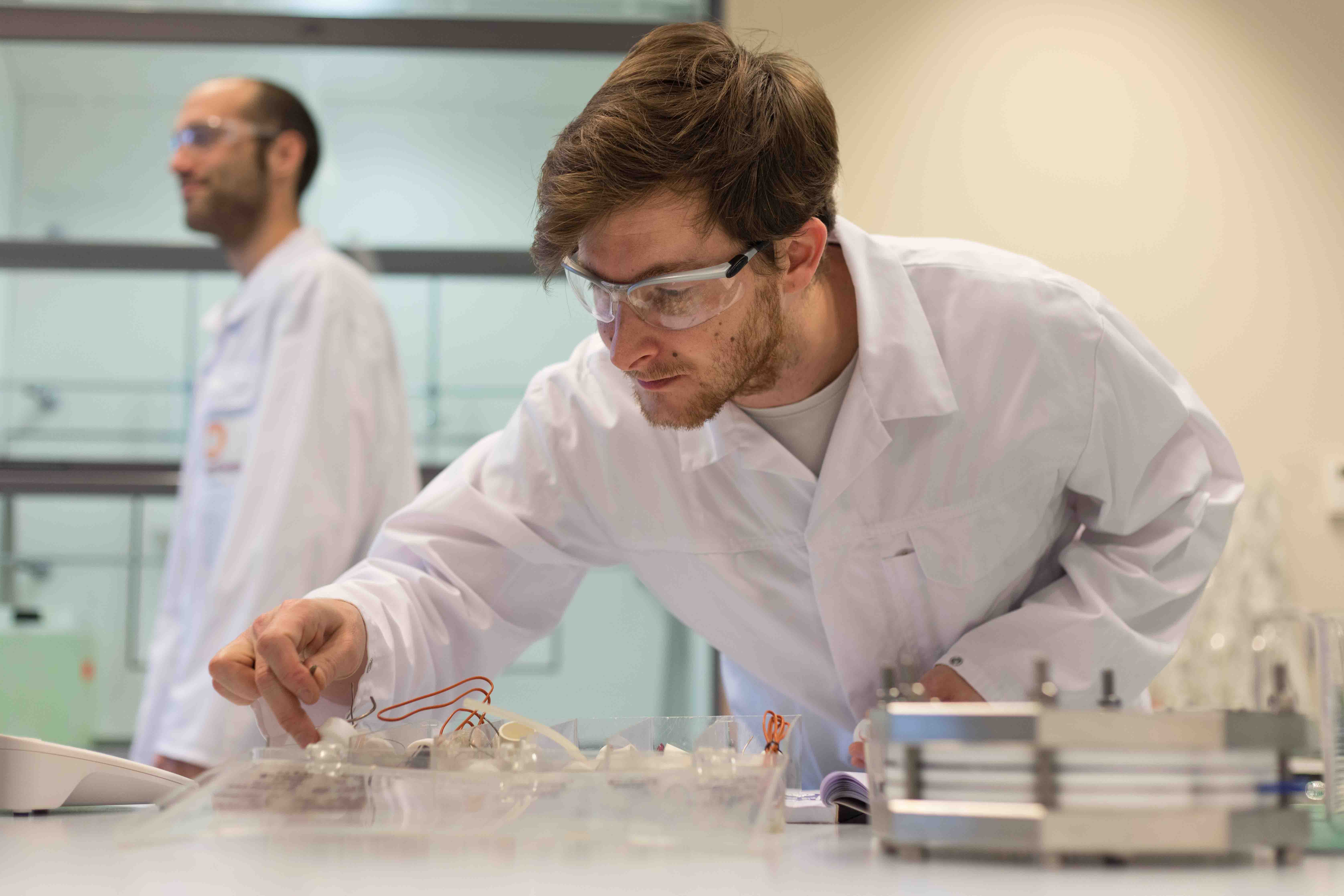Climate change, a crucial global agenda, acts as a catalyst, prompting people to turn their attention seriously to the environment. This shift is not limited to changes in daily routines; it extends to significant changes in energy infrastructure and the establishment of national measures to accelerate the reduction of net greenhouse gas emissions to zero as quickly as possible.
Countries and Their Measures Towards Carbon Neutrality
Superpower nations have demonstrated their leadership by implementing environmental policies aimed at achieving carbon neutrality and net-zero greenhouse gas emissions. For example, China has initiated a carbon trading market to reduce greenhouse gas emissions across industries. Singapore aims to become the hub of green finance in Asia. At the same time, the United States has implemented various sustainability measures, particularly tax incentives, to encourage the adoption of clean energy by consumers and businesses. The consideration of the Clean Competition Act (CCA) pertains to the imposition of a carbon tax on both domestically produced and imported goods if they exceed the industry's average carbon footprint.
In Europe, the European Union boasts concrete climate change policies. Following its commitment to achieving net-zero emissions by 2050, the European Commission has outlined the European Green Deal as a comprehensive plan to drive the goal of net-zero greenhouse gas emissions. By 2030, the European Union is committed to reducing its net greenhouse gas emissions by at least 55% compared to 1990 levels. One of the measures the European Union employs to tackle greenhouse gas emissions is the Carbon Border Adjustment Mechanism (CBAM), a policy that has sent shockwaves through industrial sectors worldwide.
What is the Carbon Border Adjustment Mechanism?
The Carbon Border Adjustment Mechanism, or CBAM, was implemented in Europe on 1 October 2023 and is set to gradually intensify in the coming years. Let’s explore what CBAM is and understand its origins.
The Carbon Trust, a provider of solutions for the climate crisis for businesses, has provided information that the CBAM is the world's first carbon border tax, introduced by the European Union. This measure aims to address “carbon leakage,” or the offshoring of emissions outside Europe. Due to stringent carbon emission controls within the region, industries might relocate their production bases to countries with lower pollution control standards. This could ultimately result in no actual reduction in greenhouse gas emissions, merely shifting the emissions from one place to another. Therefore, CBAM is akin to a potent remedy Europe chose to achieve its net-zero emission goal.
European Union's Carbon Tax Mechanism
Delving into the details reveals that in its first three years, the European Union's CBAM will focus on businesses with high carbon emissions, such as cement, fertilizers, iron and steel, aluminum, hydrogen, and electricity. The scope will then expand to include other businesses. Full carbon taxation will commence on 1 January 2026, calculating the cost payable for greenhouse gas emissions in two ways: 1) Direct Emissions, which are carbon emissions from production processes, including machinery and vehicles, and 2) Indirect Emissions, such as the amount of electricity used.
Since late 2023, numerous news outlets have headlined that Europe has begun enforcing its CBAM, which many might interpret as the beginning of collecting fees. However, this is not the case.
The implementation of the CBAM will be divided into two crucial phases: the Transition Period, from 1 October 2023 to 31 December 2025, is the initial phase requiring importers to report the greenhouse gas emissions, or Embedded Emissions, of their products before entering the full enforcement phase starting from 1 January 2026. During this phase, importers must not only report Embedded Emissions but also provide evidence of payment for carbon fees or CBAM certificates. The fee will be based on the weekly average auction price of EU ETS allowances in the European Union's carbon market.
The Ripple Effect from the European Union to Other Countries and the Impact of CBAM
Bloomberg, a news and financial information software provider, offers an interesting perspective on the global impact, stating that the CBAM will affect the global supply chain. Businesses importing goods into the European Union must rely on greenhouse gas emission data from their partners in other countries. This requirement necessitates backtracking to the data sources, adding to the administrative burden and increasing the risk to business operations. Companies within the supply chain must adapt to comply with this measure.
To seize business opportunities, Bloomberg recommends that businesses with international supply chains quickly prepare for the CBAM measures. The preparation of greenhouse gas emission reports in the initial phase is crucial. This preparation not only mitigates the risk of non-compliance with trade regulations but also allows companies to review their own trading activities before the full enforcement of the CBAM begins in 2026.
While the European Union's CBAM is only the initial step among all the measures, it is a significant move that encourages other countries to adopt similar principles. This initiative aims to set a standard for importing goods with lower greenhouse gas emissions, involving countries like the United Kingdom, Turkey, Australia, or even the United States.
As a country exporting to the European Union, the impact of the CBAM is inevitable for Thailand. For example, it results in higher prices for Thai goods imported into the European Union, leading to reduced exports to European Union countries and affecting the cost of producing goods in Thailand. Specifically, it impacts the cost of obtaining certification and the cost of modifying production processes to be more environmentally friendly, aligning with global standards.
Krungsri Research Intelligence has analyzed the impact of the CBAM on Thailand interestingly, noting that initially, Thailand may not be significantly affected because the country exports a relatively small proportion of the targeted goods under CBAM compared to other types of products. However, if the CBAM measure expands its list of targeted goods and is enforced in multiple countries, Thai exporters will ultimately be affected.
Chemical Businesses Amid the Climate Change Crisis
What would happen if the European Union decided to expand the scope of goods subjected to carbon taxation to include plastics and chemicals, which are among the products that Thailand exports to Europe in significant quantities? This is especially relevant for polyethene that produces HDPE (High-Density Polyethylene) and LDPE (Low-Density Polyethylene).
The chemical industry serves as a crucial foundation for many businesses because chemicals and plastics are used in a wide variety of applications. These include packaging, automotive parts, electrical appliances, medical instruments, electronic goods, and infrastructure components such as water pipes, electrical conduits, and cables. Chemical products can be processed without limitations, enabling the realization of innovations.
Previously, there have been efforts to include the plastic industry among the targeted goods for CBAM. Although the European Parliament has not yet approved these proposals, it is uncertain whether chemical products will remain exempt from the CBAM measures in the future. Therefore, the business sector must urgently prepare to mitigate the risks associated with CBAM and the regulatory controls on carbon emissions.
SCGC on the Low Carbon Path
For the chemical industry to grow sustainably, it is not just about considering business profits but also about being mindful of the environment. SCGC, as a leading integrated chemical player for sustainability, recognizes the direction of future business operations. Therefore, it is accelerating the development of green polymer innovations, reducing carbon emissions, and utilizing carbon in the production process as a raw material for producing plastic resins.
SCGC has been actively researching innovations to reduce greenhouse gas emissions. For example, it has collaborated with IHI, a leading Japanese company specializing in machinery production for power plants and construction industries, to study and create a pilot plant for testing Carbon Dioxide Capture and Utilization (CCU) technology. It also partnered with Avantium N.V., a Dutch expert in renewable chemistry, to test the use of carbon gas as a raw material for producing PLGA polymers, or carbon-negative plastics. This process uses carbon from the production process and does not release additional carbon emissions. Additionally, it is accelerating the development of a pilot plant with a production capacity of over 10 tons per year.

Furthermore, there has been development in green polymers under collaboration with Braskem, a global leader in bioplastics from Brazil. This partnership aims to produce Green-Ethylene from agricultural ethanol instead of fossil-based ethylene. An essential innovation is the development of SCGC GREEN POLYMERTM, which adheres to circular economy principles. This initiative focuses on reducing the use of new plastic resins, recycling plastic for reuse, efficiently creating recyclable resins, and utilizing resins from renewable resources.
In targeting the European market, which has stringent greenhouse gas emission regulations, SCGC anticipates the global market's shifting trends. Thus, it has taken a step further by investing in Sirplaste, a company in Portugal, to expand its recycled plastic production capacity for the European market, with a total High-Quality Post-Consumer Recycled Resin production capacity of 45,000 tons per year. SCGC has also invested in KRAS, a leader in waste management from the Netherlands, covering the entire plastic recycling business chain. This strategic move aims to gain a competitive advantage in the crucial European recycled plastic market, which is crucial for SCGC's business operations.







